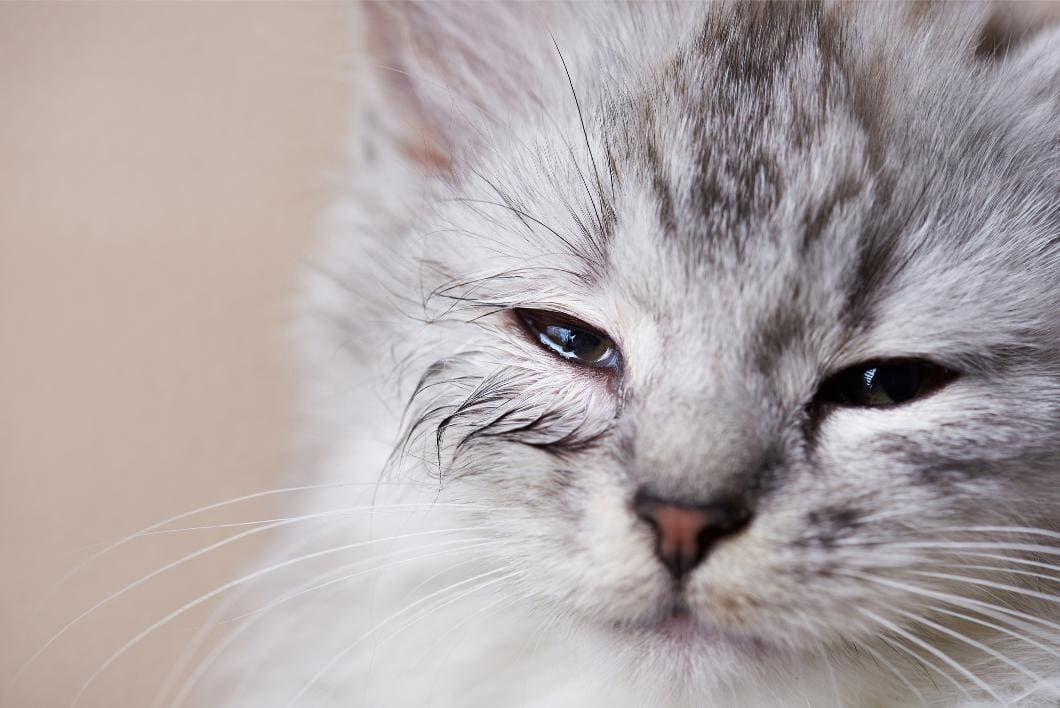Common Feline Allergies & How To Combat Them

Did you know that feline allergies are often lifelong conditions? At Crossroads Animal Hospital, we understand the frustration and concern that come with watching your cat suffer from allergy symptoms. We’re here to help manage these symptoms effectively, making sure your feline friend leads a comfortable and happy life.
What Causes Cat Allergies?
Several factors can trigger cat allergies. Identifying what’s bothering your cat is key to getting them the right help. Here are common causes:
- Environmental Allergies: Like humans, cats can be allergic to pollen, mold, and dust—often grouped as atopic dermatitis.
- Food Allergies: Certain proteins or additives in cat food can trigger allergic reactions, which can lead to gastrointestinal and skin issues.
- Flea Allergies: Flea bites are a common irritant, causing severe itching and discomfort even from a single bite.
- Other Allergens: Less common allergens include household cleaning products, perfumes, and even some types of cat litter.
Spotting the Signs of Feline Allergies
Keep an eye out for these clues that your cat might be dealing with allergies:
- Excessive scratching or licking
- Chewing on their skin
- Losing hair
- Getting ear or skin infections over and over
- Having ongoing stomach troubles like vomiting or diarrhea
Catching these signs early can make a big difference in your cat’s comfort.
Preventive Measures for Feline Allergies
Want to keep allergies at bay? Here’s what you can do at home to help your cat stay happy and healthy:
- Regular Cleaning: Keep up with vacuuming and dusting to cut down on dust mites and pollen.
- Flea Control: Stick to a vet-recommended flea control plan to avoid those pesky flea allergies.
- Diet Management: Choose high-quality cat food and keep their diet consistent. If food allergies are suspected, we might try a special hypoallergenic diet.
- Avoid Smoke and Strong Fragrances: Fresh air is best. Smoke and strong smells can make respiratory allergies worse.
Diagnosing and Treating Cat Allergies
When you bring your cat to Crossroads Animal Hospital, we’ll do a complete check-up and run some tests, such as cytology, to spot any skin cell issues. If we think something specific is causing the allergies, we might send out for more tests or even suggest seeing a specialist.
Customized Treatment Plans
Our treatment options for cat allergies include:
- Oral Allergy Medications: These can help control symptoms and improve quality of life.
- Topical Treatments: Medicated shampoos or creams can help relieve itching and inflammation.
- Injectable Allergy Medications: For more severe cases, injectables might be recommended.
- Immunotherapy: We can teach your cat’s immune system to be less reactive by introducing small doses of the allergen.
- Food Trials: If we think food is the culprit, we’ll guide you through finding the food that works best.
Fear Free® Certified Care
We know visits to the vet can be nerve-wracking. That’s why our team is Fear Free® certified, using special techniques to keep your pet calm and comfortable, from treats to calming pheromone diffusers.
Why Choose Crossroads Animal Hospital?
It is important to choose the right care for your cat’s allergies. Our dedicated team at Crossroads Animal Hospital has the expertise and compassion to diagnose and treat feline allergies effectively. We work closely with you to create a tailored plan that suits your pet’s unique needs.
Take Action Against Cat Allergies
Don’t let allergies control your cat’s life. If your cat seems uncomfortable, give us a call at Crossroads Animal Hospital or schedule an appointment online. We’re here to help your cat live a life free from allergy distress.
